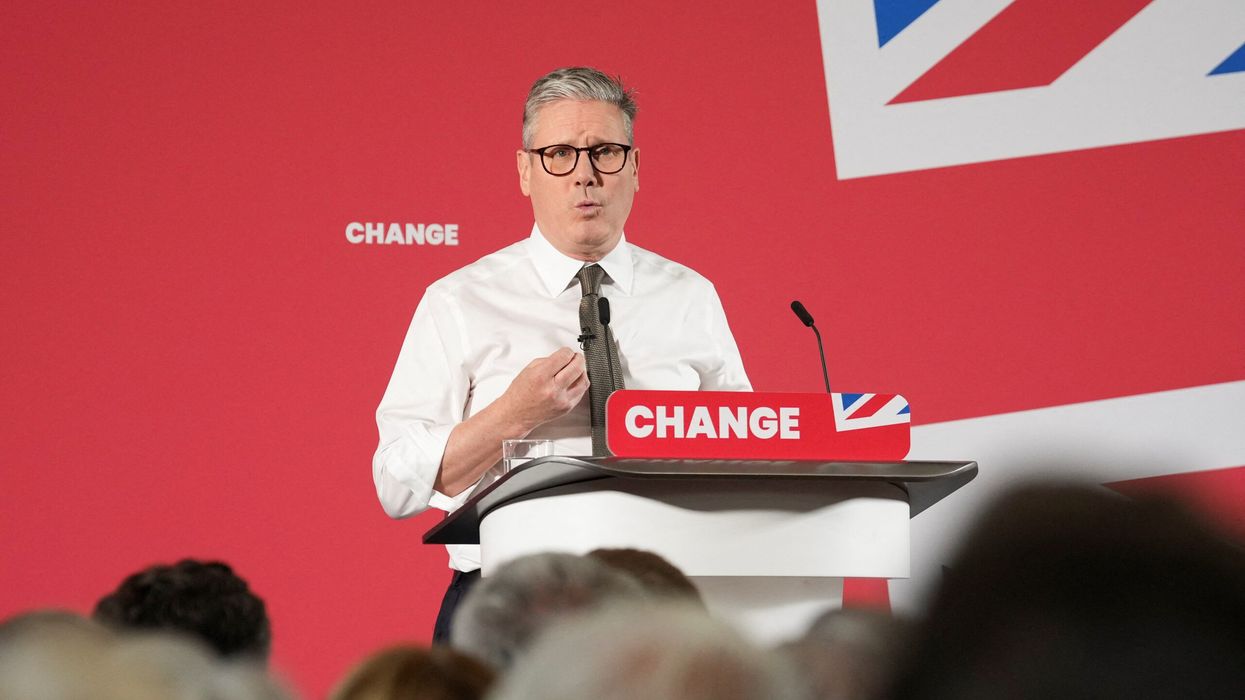TWITTER has flagged a post by Donald Trump on the unrest in Minneapolis as "glorifying violence", saying the tweet violated its rules but would not be removed.
The US president had tweeted that the military was being sent in to the embattled midwestern city as authorities there struggle to control unrest over the death of an unarmed black man at the hands of police.
"When the looting starts, the shooting starts. Thank you!" Trump wrote in reference to how law enforcement would deal with the incident.
"This Tweet violated the Twitter Rules about glorifying violence. However, Twitter has determined that it may be in the public’s interest for the Tweet to remain accessible," the social media giant said on Friday (29).
The move comes after two of the president's tweets on mail-in voting had fact-check appended to them this week, sparking a furious reaction from Trump and his right-wing surrogates. The president went on to warn Twitter of "big action".
On Thursday, Trump signed an order to strip social media giants like Twitter of legal immunity for content on their platforms in a move slammed by his critics as a legally dubious act of political revenge.
If enforced, the action would upend decades of precedent and treat internet platforms as "publishers" potentially liable for user-generated content.
Trump told reporters at the White House he acted because big tech firms "have had unchecked power to censor, restrict, edit, shape, hide, alter any form of communication between private citizens or large public audiences."
"We can't let this continue to happen," Trump said.
The move comes a day after an angry tirade from the US leader against Twitter after the platform for the first time labelled two of his tweets, on the increasingly contentious topic of mail-in voting, with fact-check notices, calling them misleading.
"In those moments, Twitter ceases to be a neutral public platform and they become an editor with a viewpoint," Trump said.
"And I think we can say that about others also, whether you're looking at Google, whether you're looking at Facebook, perhaps others."
The American Civil Liberties Union called Trump's order "a blatant and unconstitutional threat to punish social media companies that displease the president."
Eric Goldman, director of the High-Tech Law Institute at Santa Clara University, said the order was "more about political theatre than about changing the law".
While the Trump order would not prevent platforms from moderating content, it could open them up to a flood of lawsuits from anyone who claims to be harmed by content posted online.
Critics said the action represented a dangerous effort by the government to regulate online speech.
Matt Schruers, president of the Computer & Communications Industry Association, a trade group, warned that "retaliation against the private sector for fact-checking leadership is what we expect from foreign autocracies, not the United States".
But, Senator Josh Hawley, a Republican and fierce critic of social media, said that if online firms "are going to editorialize and censor and act like traditional publishers, they should be treated like traditional publishers and stop receiving the special carve out from the federal government."
A wider debate has long been underway on the power that social media companies wield and what responsibility they bear for posts that are misleading or hurtful.
Internet services like Twitter and Facebook have been struggling to root out misinformation, while at the same time keeping their platforms open to users.
After long resisting calls to censure Trump over his frequent factually inaccurate posts, Twitter on Tuesday flagged the president for the first time for making false claims.
Trump had tweeted -- without any evidence -- that more mail-in voting would lead to what he called a "Rigged Election" this November.











